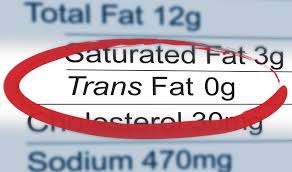- Home
- Medical news & Guidelines
- Anesthesiology
- Cardiology and CTVS
- Critical Care
- Dentistry
- Dermatology
- Diabetes and Endocrinology
- ENT
- Gastroenterology
- Medicine
- Nephrology
- Neurology
- Obstretics-Gynaecology
- Oncology
- Ophthalmology
- Orthopaedics
- Pediatrics-Neonatology
- Psychiatry
- Pulmonology
- Radiology
- Surgery
- Urology
- Laboratory Medicine
- Diet
- Nursing
- Paramedical
- Physiotherapy
- Health news
- Fact Check
- Bone Health Fact Check
- Brain Health Fact Check
- Cancer Related Fact Check
- Child Care Fact Check
- Dental and oral health fact check
- Diabetes and metabolic health fact check
- Diet and Nutrition Fact Check
- Eye and ENT Care Fact Check
- Fitness fact check
- Gut health fact check
- Heart health fact check
- Kidney health fact check
- Medical education fact check
- Men's health fact check
- Respiratory fact check
- Skin and hair care fact check
- Vaccine and Immunization fact check
- Women's health fact check
- AYUSH
- State News
- Andaman and Nicobar Islands
- Andhra Pradesh
- Arunachal Pradesh
- Assam
- Bihar
- Chandigarh
- Chattisgarh
- Dadra and Nagar Haveli
- Daman and Diu
- Delhi
- Goa
- Gujarat
- Haryana
- Himachal Pradesh
- Jammu & Kashmir
- Jharkhand
- Karnataka
- Kerala
- Ladakh
- Lakshadweep
- Madhya Pradesh
- Maharashtra
- Manipur
- Meghalaya
- Mizoram
- Nagaland
- Odisha
- Puducherry
- Punjab
- Rajasthan
- Sikkim
- Tamil Nadu
- Telangana
- Tripura
- Uttar Pradesh
- Uttrakhand
- West Bengal
- Medical Education
- Industry
Say no to Trans fats to reduce death risk

Trans fats are found to more dangerous to your health than the saturated fats in animal products, researchers from McMaster University have recently concluded. It is believed to be associated with greater risk of death, coronary heart disease and stroke or Type 2 diabetes as established by the researchers.
"For years, everyone has been advised to cut out fats. Trans fats have no health benefits and pose a significant risk for heart disease, but the case for saturated fat is less clear," said lead author and assistant professor Russell de Souza, as reported by IANS.
Trans fats are mainly sourced from industrially produced food products from plant oils (a process known as hydrogenation) for use in margarine, snack foods and packaged baked goods.
As further reported by IANS
Current US guidelines recommend that saturated fats are limited to less than 10 percent and trans fats to less than one per cent of energy a day to reduce risk of heart disease and stroke.
The team analysed the results of 50 observational studies assessing the association between saturated and/or trans fats and health outcomes in adults.
The team found no clear association between higher intake of saturated fats and death for any reason, coronary heart disease (CHD), cardiovascular disease (CVD), ischemic stroke or Type 2 diabetes.
If we tell people to eat less saturated or trans fats, we need to offer a better choice.
"Replace foods high in these fats, such as high-fat or processed meats and donuts, with vegetable oils, nuts, and whole grains," the authors suggested in a paper published in British Medical Journal (BMJ).
"For years, everyone has been advised to cut out fats. Trans fats have no health benefits and pose a significant risk for heart disease, but the case for saturated fat is less clear," said lead author and assistant professor Russell de Souza, as reported by IANS.
Trans fats are mainly sourced from industrially produced food products from plant oils (a process known as hydrogenation) for use in margarine, snack foods and packaged baked goods.
As further reported by IANS
Current US guidelines recommend that saturated fats are limited to less than 10 percent and trans fats to less than one per cent of energy a day to reduce risk of heart disease and stroke.
The team analysed the results of 50 observational studies assessing the association between saturated and/or trans fats and health outcomes in adults.
The team found no clear association between higher intake of saturated fats and death for any reason, coronary heart disease (CHD), cardiovascular disease (CVD), ischemic stroke or Type 2 diabetes.
If we tell people to eat less saturated or trans fats, we need to offer a better choice.
"Replace foods high in these fats, such as high-fat or processed meats and donuts, with vegetable oils, nuts, and whole grains," the authors suggested in a paper published in British Medical Journal (BMJ).
Next Story


